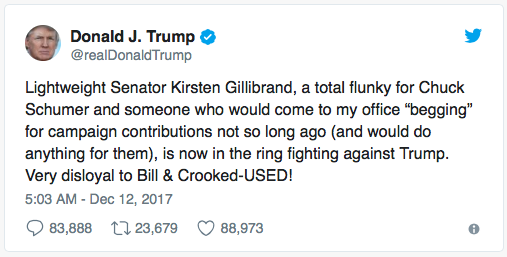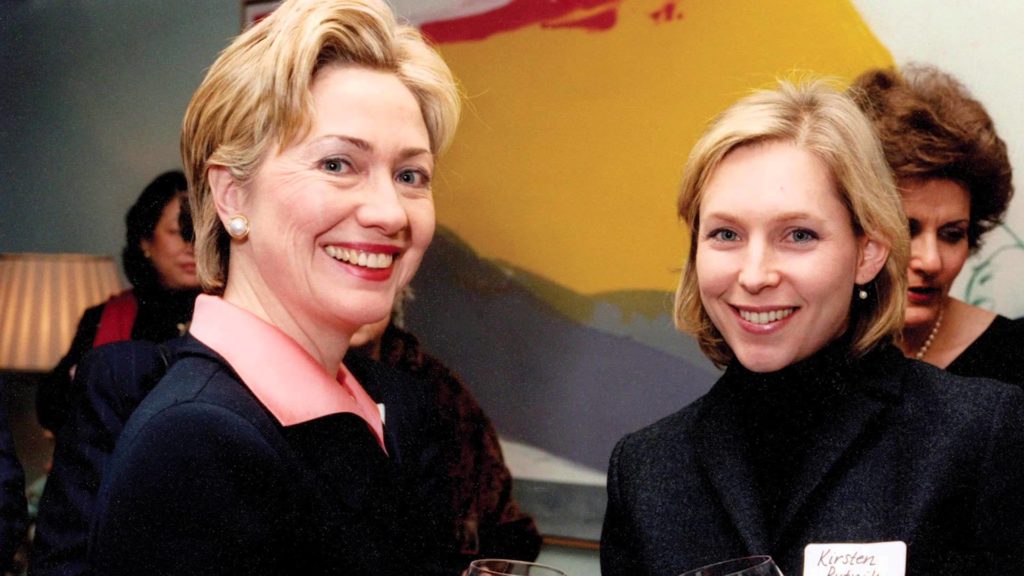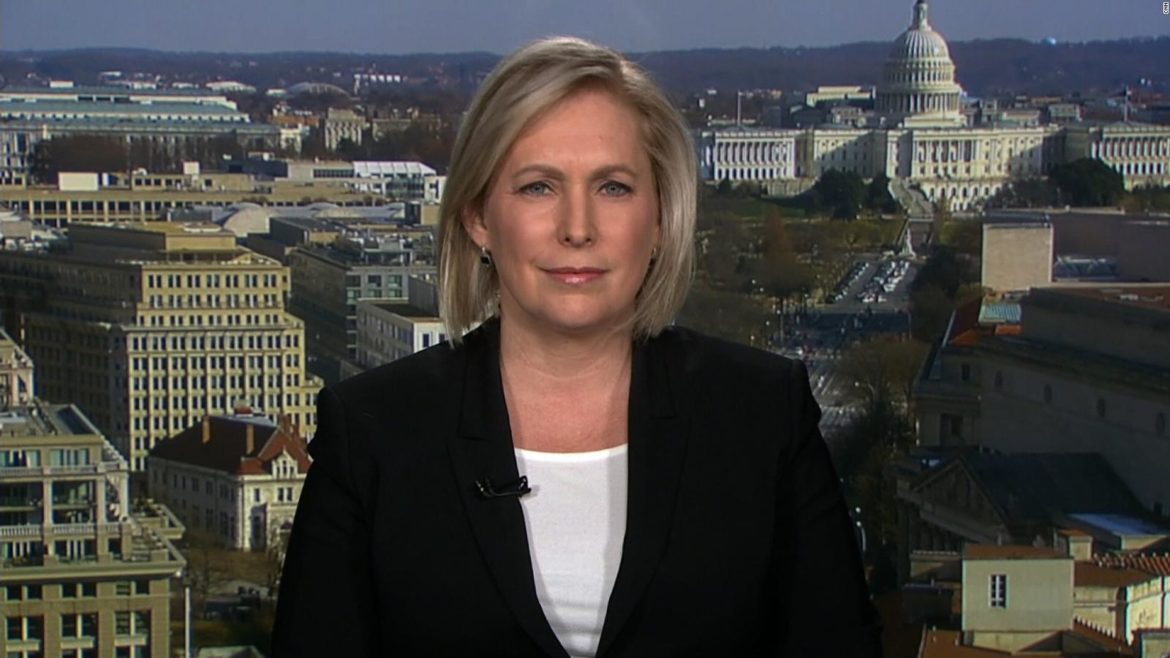We’re into year one of Trump’s presidency and there is already speculation of who will challenge him in the 2020 election. While no one has officially announced their bid for the 2020 presidential election, there are a few names already at the top of the Democratic list of primary potentials. At the top of the list? Kirsten Gillibrand. A New York Senator, vocal Trump dissident, and active female voice in the ongoing #MeToo movement, has snagged top choice for a presidential run versus potential incumbent Donald Trump. So, let us explore Gillibrand’s pros and cons, as well as take a deeper look at the sexism that she has already faced.

Gillibrand’s pros are pretty apparent. She’s a strong female senator from a powerful Democratic state, she has substantial experience in government, and she has made her disapproval of Trump abundantly clear. She was one of the first of her party to push for fellow Democratic Senator Al Franken’s resignation after he was accused of sexual misconduct and introduced a bipartisan bill seeking to change the way Congress deals with sexual harassment. She is pro-choice, pro-gay marriage and pro-environment. In most areas, she is a fantastic presidential candidate for Democrats. And even so, or maybe because of these positive aspects, she has already been subjected to criticism.
Gillibrand really became visible as a potential candidate after Trump made her yet another subject of his Twitter insults. After three of Trump’s accusers went public yet again to call for action against their abuser, Gillibrand took to Twitter to call for Trump’s resignation. And Trump responded in the aggressive and childish way we have all come to expect.

Referencing Gillibrand’s recent denunciation of former President Bill Clinton in the wake of the #MeToo movement, the language of Trump’s attack was deemed especially unsavory. Many took his words “would do anything for them” to be sexually suggestive and felt they painted Gillibrand as excessively opportunistic.
And the word “opportunistic” has continued to crop up in regards to Gillibrand, with a Daily Beast op-ed by Ciro Scotti calling her “too transparently opportunistic to be a viable candidate”. Mainly citing her changed issue stances after moving from a New York Representative to a New York Senator, Scotti believes that “nearly every move seems to be a self-serving playing of the angles” and that “Gillibrand seems to be an especially egregious practitioner of the finger-in-the-wind politics that so many voters can no longer abide”. What Scotti fails to recognize, however, is that shifts in issue stances are completely normal for politicians. In Gillibrand’s case, she went from representing a more moderate district to a heavily liberal state. It is not “opportunistic” to change her viewpoints depending on her constituents, it’s her job. Suggesting that Gillibrand is any more opportunistic than other politicians not only does a disservice to her ongoing work in support of the American people, but relies on the same old, tired, misogynistic argument that people used against Hillary Clinton: That ambitious women are off-putting. Not only that, Scotti seems to consider Gillibrand to be especially opportunistic because she seized political opportunities at the expense of men.

Does Gillibrand have faults? Of course. Her past isn’t perfect. She has had ties to Wall Street and got her start in politics with the highly conservative former Republican Senator Alfonse D’Amato. She has a voting history that isn’t conducive to her current opinions on things such as gun rights, immigration, and LGBT rights. And I’m sure this will all come to light if she does decide to run. But as mentioned earlier, isn’t evolution part of the job? And shouldn’t we be supportive of someone that has allowed their opinions to change as new knowledge was gained, rather than sticking to an issue stance in spite of evidence to the contrary? In the end, it seems that the main mark against Gillibrand is her gender. Because it’s hard to believe that no other government officials have changed their opinions or could be viewed as “opportunistic”. But of course those others aren’t women.
So when are we going to stop criticizing women for having ambitions? When are we going to get rid of the double standard in which ambitious men are inspiring, but ambitious women are demonized? If Gillibrand does decide to run for president, the next three years will be long and grueling for its preparation, as they would be for any candidate. But the already percolating theme epitomized in Scotti’s article is proof that she will be subject to unwarranted sexism throughout her campaign– and proof that women still have a long way to go.
By: Cianna Allen

